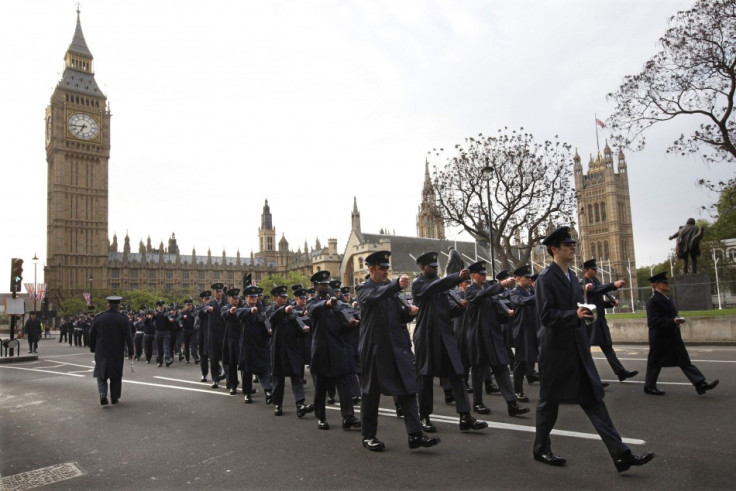UK Armed Forces Chief: David Cameron Opposed to Army, Navy and RAF Job Cuts

Britain's chief of the defence staff of the British Armed Forces revealed that Prime Minister David Cameron is opposed to cutting jobs across the army, navy and RAF, despite the next government facing financial pressures after the general election in 2015.
General Sir Nick Houghton said he would "fight to the last" against more cuts to the armed forces, despite the government saying that it would cut 20,000 jobs in the Army and increasing the number of reservists.
"I know the Prime Minister does not want again to cut the physical manpower of the Armed Forces. But there is of course still further fiscal consolidation to face and we are well aware of that," said Houghton in a televised interview, to coincide with Remembrance Sunday,
"I've never courted the cult of military celebrity. I've always thought that [it best] to work within the system, to allow wise council to bring about the best results.
"Ultimately, I can't dictate from inside to a government. I can't dictate what it's going to give the Armed Forces and defence as a settlement. That's what the people can do, that's what the media can do. All I can do is just try to counsel everybody in the remarkable utility of the Armed Forces.
"I think we are good value for money and I will quietly, from inside the system, fix my bayonet and fight to the last," he said.
The current Conservative and Liberal Democrat coalition government has pledged to axe 20,000 armed forces jobs yet spend 2% of Britain's GDP on defence beyond 2015 as part of its commitment by all Nato members.
However, the government has so far failed to reach this target and Conservative backbenchers have tried get Cameron to promise that his office would reach this target soon and not let the armed forces numbers drop below 82,000.
Recently, a group of MPs slammed the UK government over its "bungled" recruitment plan for the army.
The Public Accounts Committee (PAC) warned that the Army could face shortfalls in recruitment and that there was a risk of capability gaps emerging in some parts of its structure.
Margaret Hodge MP, chair of the PAC, said it was "astonishing" that the MoD went ahead with the job reduction programme without testing whether "this was doable and without properly consulting the Army itself".
"It is remarkable that the chief of the general staff was not involved in all stages of the decision-making process given the magnitude and importance of the change required, and its impact on the service which he commands," Hodge said.
"The MoD did not test the feasibility of recruiting and training the 30,000 reserve soldiers it needs by 2019."
© Copyright IBTimes 2024. All rights reserved.






